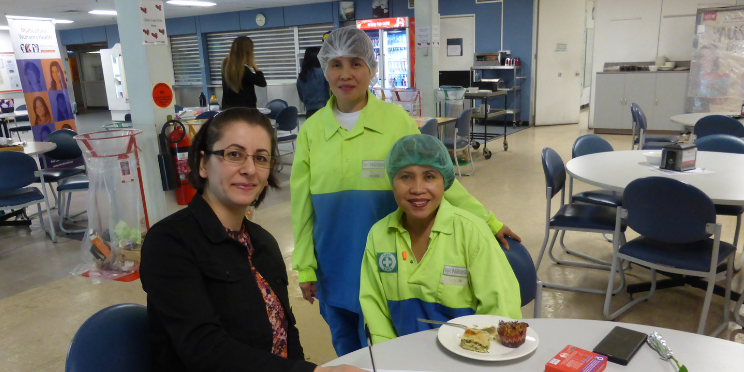The care-giving workforce (in particular, doctors, nurses, child-care workers and aged and disability care workers) is disproportionately made up of migrant and refugee women, who continue to work for less pay, often in insecure and precarious conditions.
Throughout Australia’s history, migrant workers have endured difficult conditions, discrimination and exploitation, across many industries.
Many factors 'push' migrant and refugee women into low paid roles. This is structural marginalisation and racial inequality.
MCWH supports the equal rights of all migrant women to participate in employment, earn an income, enjoy the same rights and opportunities as other workers, be equally represented in decision-making roles, and to be valued and respected for work both paid and unpaid.
As part of the Equality@Work project, MCWH produced the report Workplace Equality: A model for preventing violence against migrant and refugee women.

Our work in workplace safety and wellbeing
Community Conversations: Talking about finding work in Australia
Showing up for our workers
Intersectionality resources to strengthen gender equality in the workplace
The role of the workplace in promoting gender equality
A recent Victorian survey reported 64 percent of women experience bullying, harassment of violence in their workplace (Victorian Trades Hall Council, 2017).
Our Watch, the national leaders in the primary prevention of violence against women and their children, have found that workplaces and organisations are key settings for primary prevention activities, as they provide significant opportunity to reach large populations and influence organisational culture, working environments and practices, and social norms and relationships. Promoting gender equality in the workplace is one of the key recommendations of the 2016 Royal Commission into Family Violence.
For migrant and refugee women, workplaces might be one of the few places where they have access to information and resources about gender equality and capacity building. Workplace-based gender equality initiatives should address the different inequalities women face in the workplace, including exclusion and discrimination and provide opportunities for leadership, training pathways and recognition of women’s skills and qualifications.



